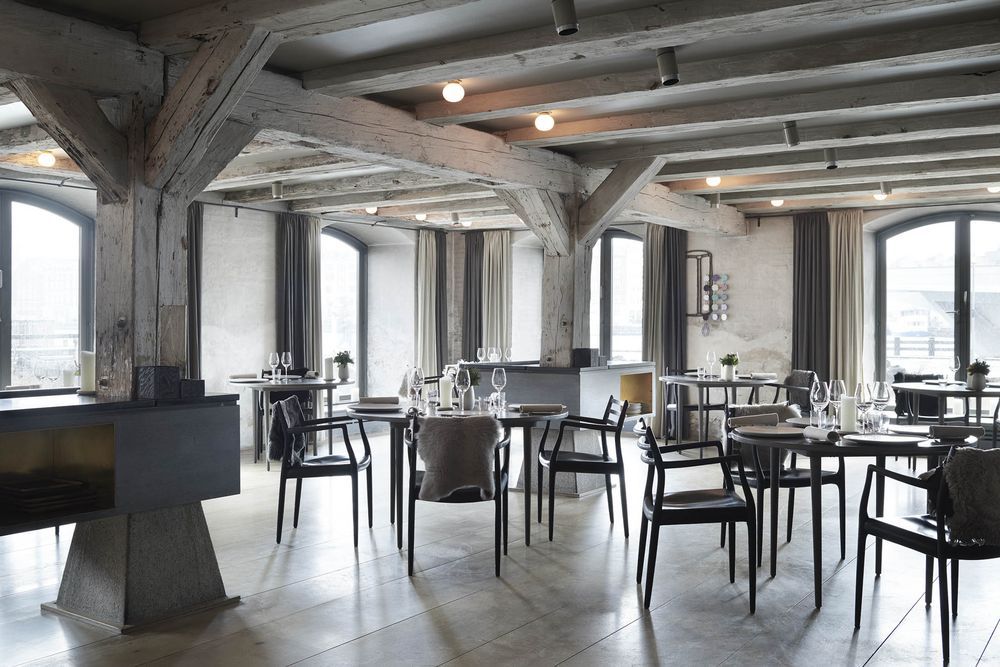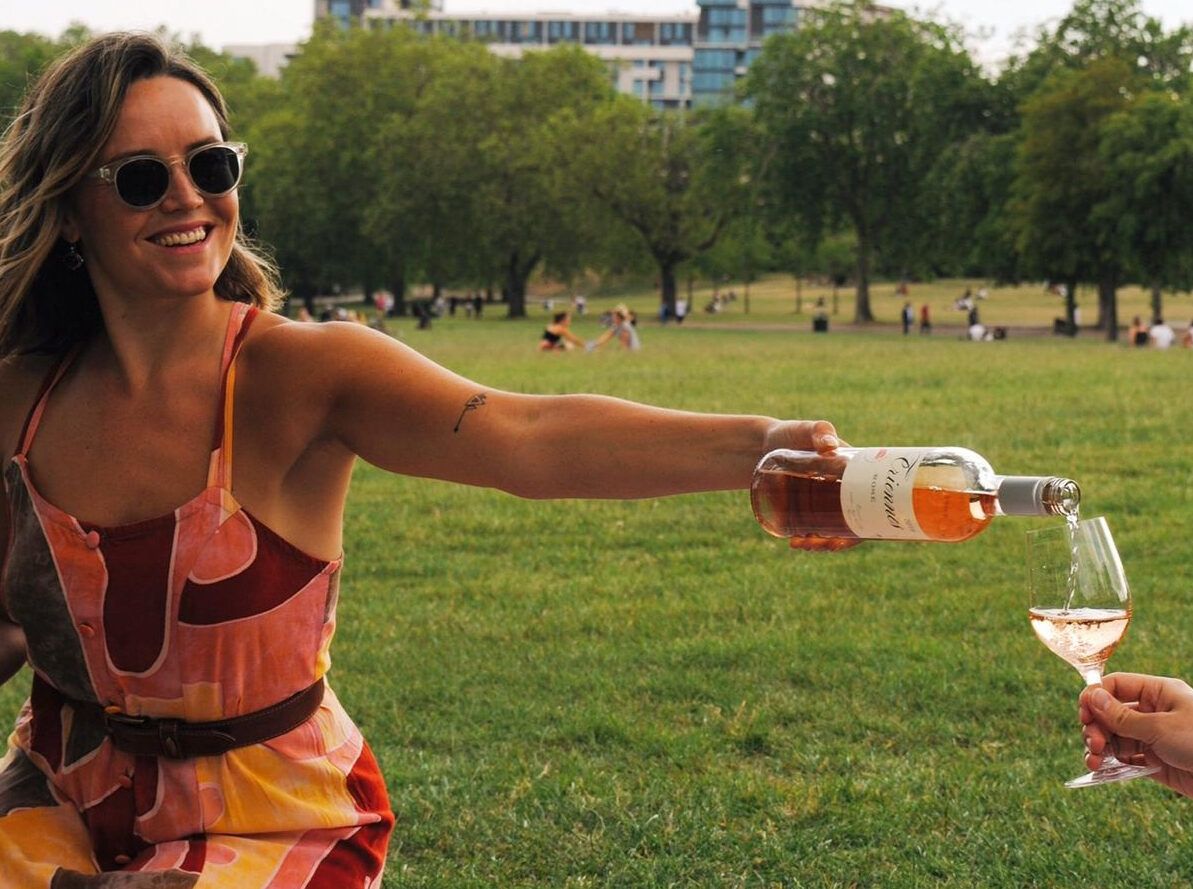Amber Gardner took up The Buyer’s offer to give a platform to new writers with this brilliant article on what it is like being a woman working as a sommelier in hospitality and the wine industry.
A colleague of mine once thought it funny – a compliment if you like – to rate all the female staff by how great their asses were. The better the ass, the more he enjoyed working with you. Apparently my ass was “…quite nice. But not as nice as some of the others”. Well thanks for that. But no thanks. I pointed out this was sexist. And unprofessional. It said something about our industry that he was unable to understand why this was offensive.
Working as a sommelier is exciting. There’s a dynamism across the wine industry today that I don’t think there has been before. It’s more accessible. Less stuffy. And it’s downright fun. I love what I do. This is my passion and for me hospitality is a long-term career. But we need a conversation. Not a gripe. Or a rant. But a conversation about how we develop and improve the working environments for women today and for the generations to come.
Get ahead of the fire; teaching and talking

The restaurant floor: where relationships and behaviour between staff is just as important as it is with the restaurant’s customers
The story I just told you never went beyond the dining room. It was lost in the bustle of service. The male colleague may well have forgotten it by now, but it still plays on my mind. How could this man be so ignorant? I wonder how many conversations or remarks like this have been lost in the bustle of service? He is a nice person and a good colleague, but a culture that accepts such slyly insidious behaviour like this causes nice people into toxic people.
I am yet to meet a woman who hasn’t been undermined professionally for her sex. My story is one of hundreds I know. One of the many I have personally experienced. I am fed up thinking male colleagues “should know better”. I am also tired of this simply being discussed in hushed, irked whispers amongst female colleagues after service. It’s time to say it out loud. Time to let it be known. To call it out, address it, and stop it.
Imagine a service briefing where we could share stories of interactions like this, along with the menu, the specials and the VIP guests. That would change the narrative. That would change behaviour. Even the threat of it, the space for that to happen, would change our workplaces for women.
There are a lot of shared stories of sexual harassment and female belittling that ends in hostile working environments, people being fired, people quitting and at worst, police involvement. Why do we insist on treating this as a case-by-case fire-fighting exercise? How about we all get ahead of the fire before it can ever ignite?
When you join any business, your induction and training should include an open conversation around this topic. Give examples, coax out opinions and open up dialogue between your team. Many of the issues stem from something that is believed to be “harmless banter”, but if such moments are given some light and more openly discussed, perhaps we can better understand each other.
This is not meant to humiliate or disparage, but to offer self-reflection. We spend countless hours looking after people, caught in the vibrant intensity of service, falling out in an exhausted heap in the early hours of the morning, just to do it all over again the next day. This fast and demanding environment doesn’t lend itself to slowly developing discourse, but we need to try. Because, if one part of our industry is suffering, then we are all missing out.

Businesses of all sizes should ensure there is a safe environment for its staff to work in
Look around – what do you see?
I am 32 years old with eight years in the wine industry. I still suffer from Imposter Syndrome. I often wonder why this is? I have a great job and get great feedback from guests and colleagues alike. I know that I have worked hard and deserve to be where I am. Yet I realise that I am not, and never will be, part of the inner club of wine – the boys’ club – that still dominates the wine industry.
I walk into a room and I don’t see people who look like me. It’s intimidating and overwhelming. And this is about more than just my feelings and the feelings of other women. It’s about the fact that male cliques are where invitations are made. Where important conversations are had. And where jobs circulate and a cycle of male-dominance is enforced. Accidentally, and without malice, maybe. But enforced all the same.
Mentorship and role models are vital in any industry. To have somebody who has been in your place and can give you guidance to develop. To reassure you they understand your struggles and the potential barriers that lie ahead for you. I don’t see enough of these female faces or hear enough of their voices in the upper echelons of our industry to feel confident that there is space for me or for other women to succeed. This holds us back in taking the roles and the responsibilities that we are worthy of. It makes us unsure of our path and whether we’ll be accepted when we arrive.
I am challenging this. I am determined that I will rise to the space I deserve. And as an “older” hospitality worker, I am trying to offer mentorship and guidance to my younger female colleagues. It could be flagging up tastings. Or introducing you to influential people. Or sharing stories of wine trips or advising you how to handle misogynistic colleagues and guests. I know you need these support mechanisms and inspiration-drivers in place. And if you’re an employer, I know your female staff need this to grow in confidence and drive themselves and your businesses forward.
What do our futures hold?

The industry should do more to ensure the skills learnt on the restaurant floor can be used for the long term in new career opportunities within hospitality and the wider drinks industry says Amber Gardner
So what does my future looks like in this industry? If you’re a woman what does your future look like? I’ll be honest, I can’t see how I can sustainably continue to work in service for the next 10 years, let alone the next 30. I love what I do. But working 15 hours a day, weekends, bank holidays and Christmas, whilst accepting limited earning opportunities, takes its toll. And that’s before I even get onto the topic of trying to raise a family.
But, instead of losing hordes of people from the industry through burn out and finite options for growth, why don’t we try to keep them in? Take these industry insiders who have an intrinsic understanding of hospitality and develop them with further skills – Excel, InDesign, web development, coding, WSET, CMS, management training. And more. So that when they leave the floor they will have the expertise to continue to thrive and drive our workplaces and our people forward. There is no downside to this.
And it would soften the drudgery of low salaries and the demeaning practice of a “base salary” topped up with service charge. This is an anachronism and removing it from standard practice is well overdue. Give your people a reason to feel invested in your business. To feel appreciated for their hard work. And to remain longer in their hospitality careers.
I began wondering how to respect and nurture women in the hospitality industry. But as we find ways to tackle those issues, we see what’s good for women, is good for all. Better, more engaging, more rewarding careers. If women do well, our whole industry gains. There will be no losers. Except maybe guys who are more interested in rating asses.
- Amber Gardner is sommelier at Davies & Brook, one of the flagship restaurants at Claridge’s hotel. She has previously worked at Leroy, and before spending time overseas has also worked at Enotria and Jascots. Whilst overseas she worked in Australia for Shaw + Smith, Penfolds & d’Arenberg, before moving to the Auvergne where she worked at the Auberge de Chassignolles, famous for its natural wine selection. She spent last year working in Lisbon with the nomadic pop-up ONA, before travelling throughout Portugal to do harvest with a few producers (Vale da Capucha, Quinta da Serradinha, Tiago Teles, Victor Claro).
- If you are a new drinks or restaurant writer looking for a break and the opportunity to share your work then The Buyer can hopefully help. Please send any ideas to Richard Siddle at richardsiddle@btopenworld.com.
































